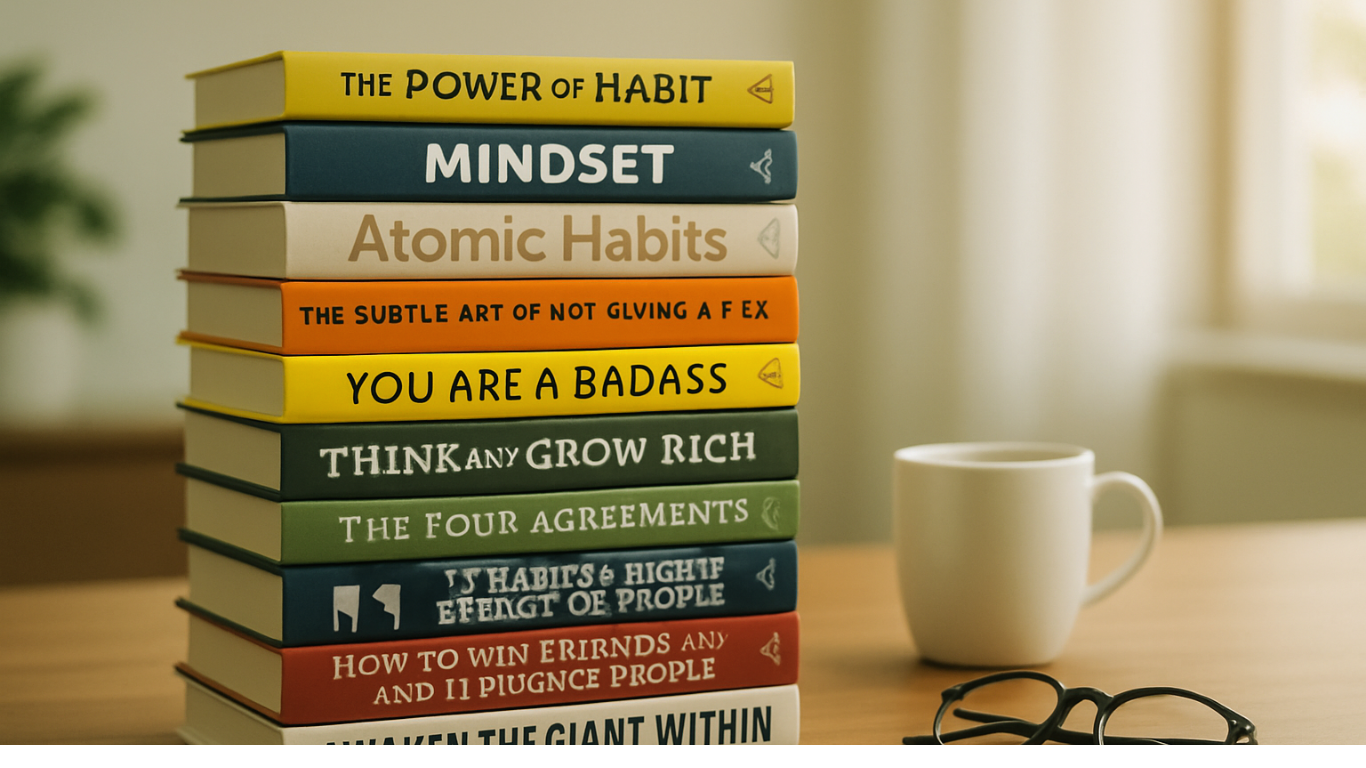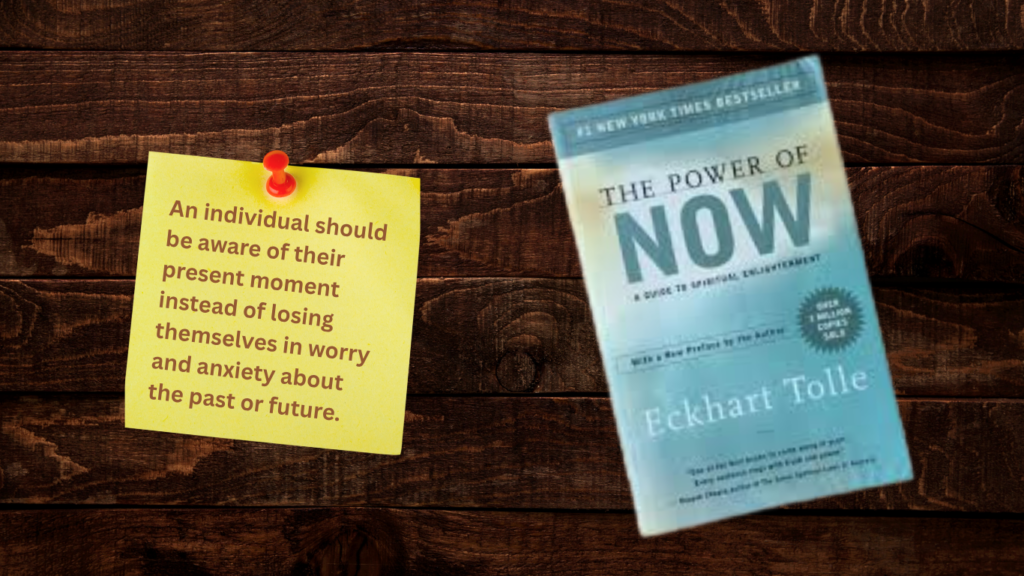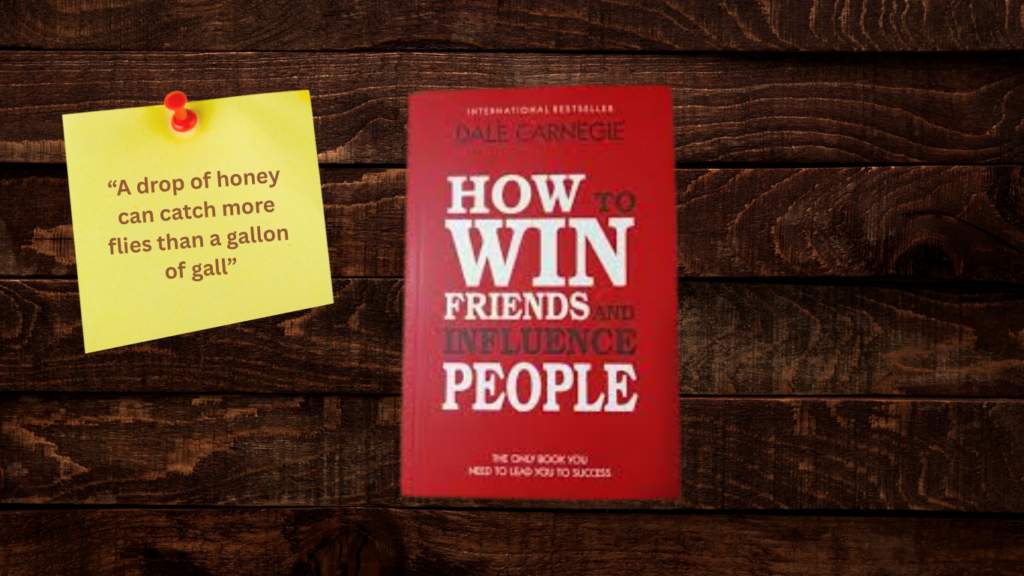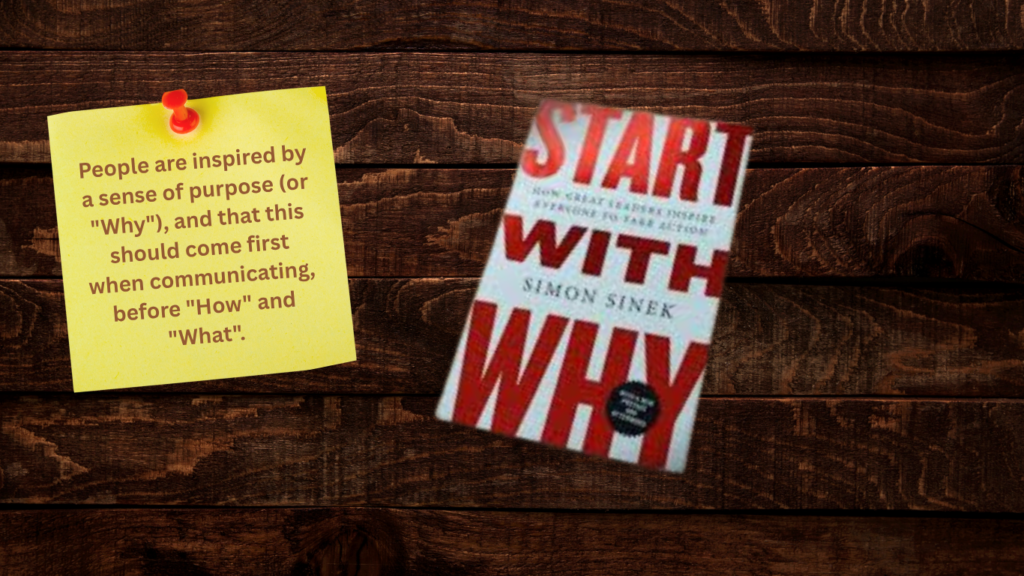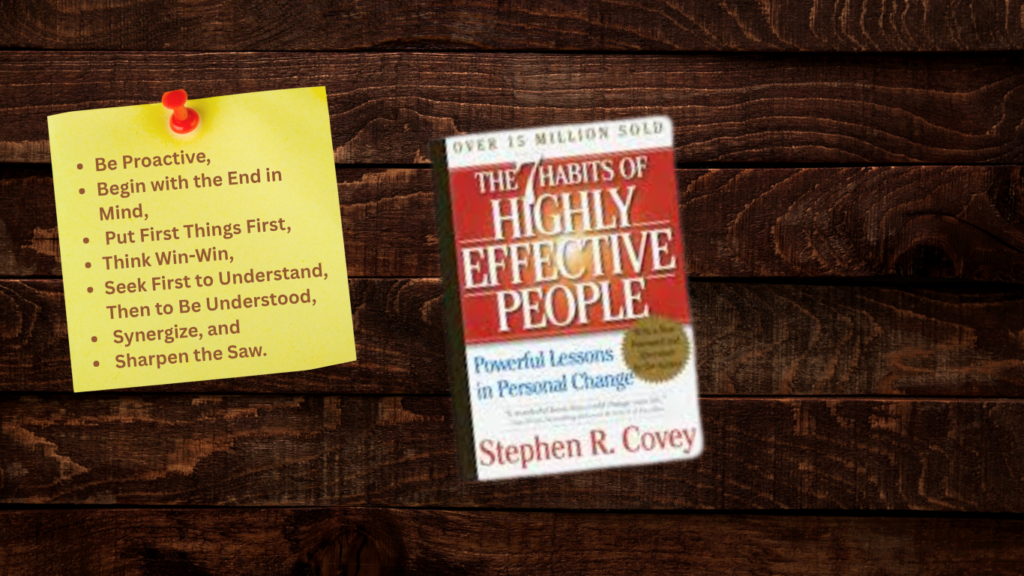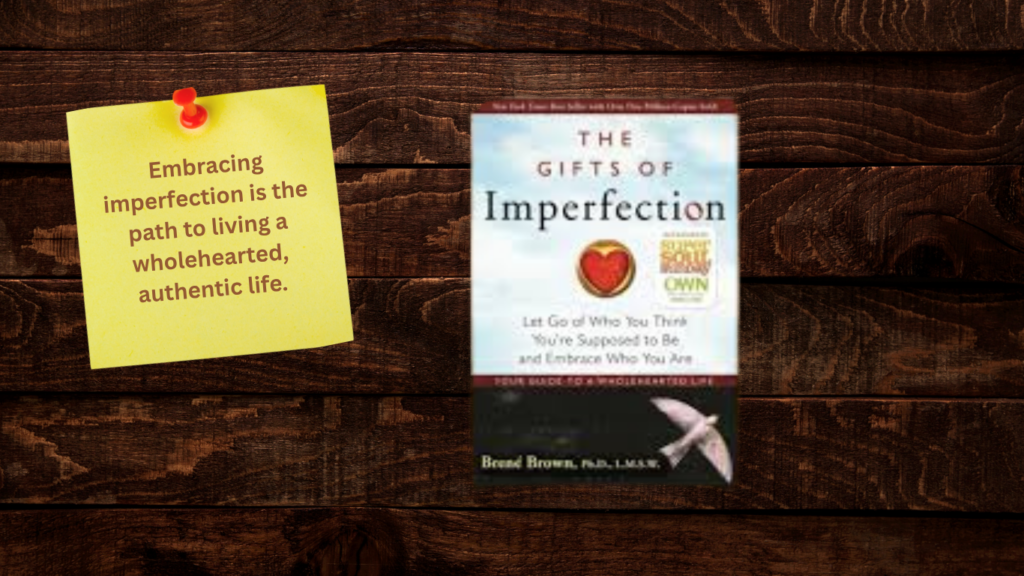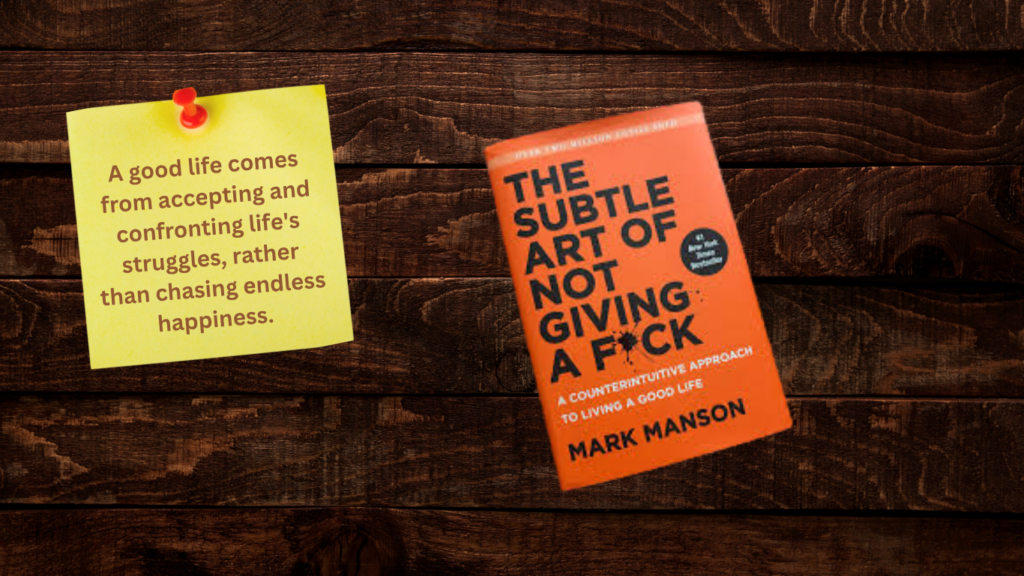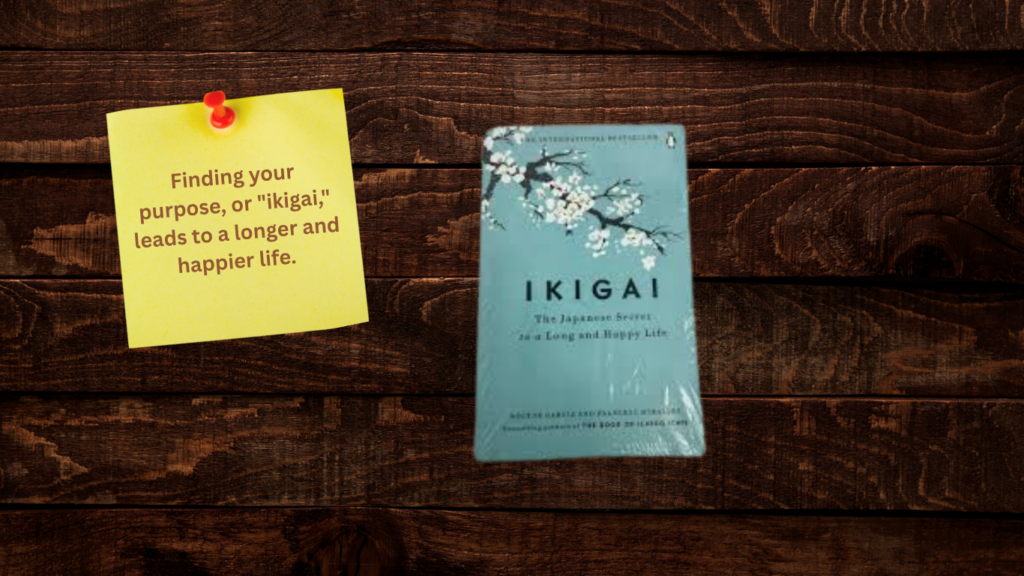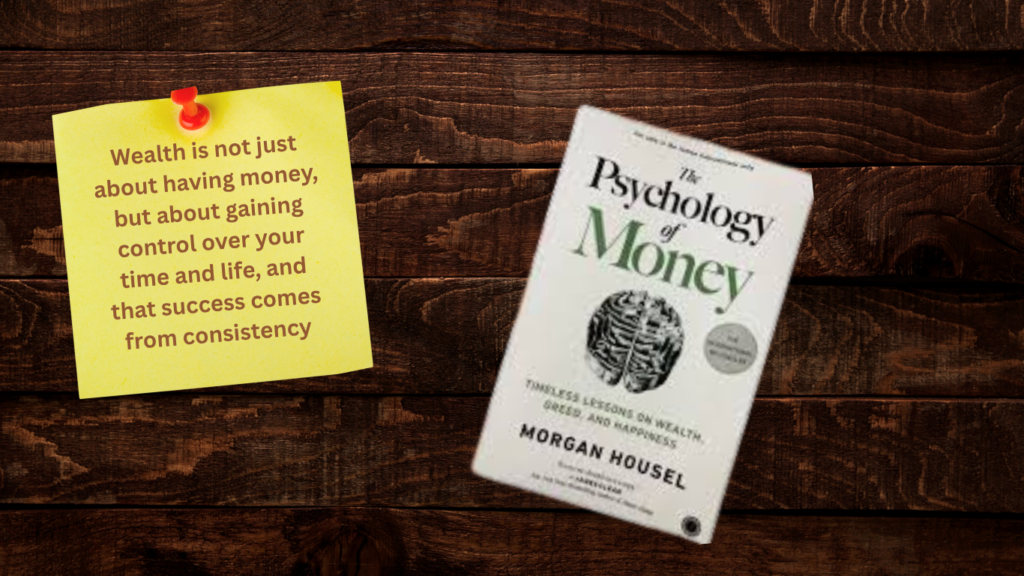We all seek to evolve, to improve, and to live a life that feels authentic and fulfilling. But where do we start? The sheer volume of self-help books can be overwhelming. That’s why I’ve distilled this curated list of 10 Extremely Important Books for Personal Growth that have not only stood the test of time but continue to shape the lives of millions.
This isn’t just a list; it’s a deeply personal and professional guide, offering key takeaways and my honest opinion on why each book deserves a permanent spot on your nightstand.
The Foundation: Building the Inner World
The most profound personal growth begins not with external achievements, but with a fundamental shift in how we think, feel, and relate to ourselves. These first few books lay the critical groundwork for all future success.
1. Atomic Habits: An Easy & Proven Way to Build Good Habits & Break Bad Ones by James Clear
The Core Idea: True change comes from the compound effect of hundreds of small decisions, or “atomic habits.” Clear provides a practical, four-step framework, Make it Obvious, Make it Attractive, Make it Easy, and Make it Satisfying to engineer an environment where good habits thrive and bad habits wither.
Key Takeaways:
- Focus on Systems, Not Goals: You do not rise to the level of your goals; you fall to the level of your systems. The goal is to become a person who doesn’t need to try to be better, but who is better by default.
- The 1% Rule: Improving by just 1% every day leads to a 37-times improvement over the course of a year. Small changes are not insignificant; they are the most powerful.
Read Also: Be 1% Better Every Day: The Art of Continuous Improvement
- Identity-Based Habits: The ultimate form of intrinsic motivation is when a habit becomes part of your identity. Stop trying to get results and start trying to become the type of person who gets those results.
My Opinion: Atomic Habits is, without question, the most practical and immediately applicable book on this list. It’s a modern classic that synthesizes decades of behavioral science into a clear, compelling, and actionable guide.
I place it at the top because it gives you the operating manual for your own behavior. It’s not just about what to do, but how to do it, making the process of change feel less like a struggle and more like a simple, logical process. If you read only one book on this list, make it this one.
2. Mindset: The New Psychology of Success by Carol S. Dweck
The Core Idea: Our success in life is profoundly influenced by our mindset specifically, whether we operate from a Fixed Mindset (believing abilities are static traits) or a Growth Mindset (believing abilities can be developed through dedication and hard work).
Key Takeaways:
- The Power of “Yet”: When facing a challenge, instead of saying “I can’t do this,” say “I can’t do this yet.” This simple word shift reframes failure as a temporary setback and a learning opportunity.
- Embrace the Struggle: The fixed mindset sees effort as a sign of low ability, while the growth mindset sees effort as the path to mastery. The struggle is not a sign to quit; it’s a sign that you are growing.
- Praise Wisely: Praising intelligence or talent fosters a fixed mindset. Praising effort, strategy, and persistence fosters a growth mindset, encouraging a love of learning and resilience.
My Opinion: Dweck’s work is a cornerstone of modern psychology and personal development. It provides the intellectual framework necessary to understand why some people bounce back from failure and others crumble.
This book is essential because it teaches you to be a better coach to yourself. It’s a powerful reminder that your potential is not a fixed ceiling but a vast, open sky, limited only by your willingness to embrace the process of learning.
3. The Power of Now: A Guide to Spiritual Enlightenment by Eckhart Tolle
The Core Idea: Most human suffering is caused by our identification with the “egoic mind,” which constantly pulls us into the past (regret, guilt) or the future (anxiety, fear). True peace and power reside only in the Present Moment.
Key Takeaways:
- The Pain-Body: Tolle introduces the concept of the “pain-body,” an accumulation of past emotional pain that lives within us and constantly seeks to feed itself by creating more suffering.
- Observe the Thinker: You are not your thoughts. The key to freedom is to become the silent observer of your mind, creating a space between your awareness and the incessant stream of thinking.
- Surrender to What Is: Acceptance of the present moment even the difficult ones is the key to ending the cycle of resistance and suffering. This surrender is not weakness; it is profound strength.
My Opinion: This book is a spiritual and psychological earthquake. While it can be dense and requires multiple readings, its message is revolutionary: the only moment that truly exists is now.
It’s a necessary counterpoint to the hyper-scheduled, goal-oriented nature of modern life, reminding us that all the habits and success in the world are meaningless if we are not present to enjoy them. It offers a path to deep, internal peace that transcends external circumstances.
Additional Reading: If you’re interested in exploring more about the benefits of mindfulness and presence, I highly recommend checking out this insightful article from Psychology Today on the science of mindfulness, which dives deeper into how mindfulness can transform our emotional well-being.
The Strategy: Mastering the External World
Once the inner foundation is set, the next step is to apply that strength to the world around us to master our interactions, our work, and our influence.
4. How to Win Friends and Influence People by Dale Carnegie
The Core Idea: Success in the modern world is heavily dependent on our ability to communicate effectively, persuade ethically, and build genuine, lasting relationships. Carnegie provides timeless principles for handling people, winning them to your way of thinking, and changing them without giving offense.
Key Takeaways:
- Be Genuinely Interested in Other People: The fastest way to make a friend is not to try to be interesting, but to be interested. Ask questions, listen intently, and encourage others to talk about themselves.
- Remember a Person’s Name: A person’s name is to that person the sweetest and most important sound in any language. Using it is a powerful tool for building rapport.
- See Things from the Other Person’s Perspective: Before criticizing or judging, honestly try to see the situation from the other person’s point of view. This is the secret to persuasion and conflict resolution.
My Opinion: Published in 1936, this book is an S-tier classic for a reason: its principles are universally true and will remain so as long as humans interact. It’s not about manipulation; it’s about empathy as a strategy.
It teaches you to shift your focus from your own needs to the needs of others, which, paradoxically, is the most effective way to achieve your own goals. Every leader, salesperson, and human being should read this book.
5. Start With Why: How Great Leaders Inspire Everyone to Take Action by Simon Sinek
The Core Idea: Truly influential leaders and organizations from Apple to Martin Luther King Jr. all think, act, and communicate in the exact same way, which is the opposite of everyone else. They start with WHY their purpose, cause, or belief before moving to How and What.
Key Takeaways:
- The Golden Circle: Sinek’s framework consists of three concentric circles: WHY (the belief), HOW (the process), and WHAT (the product). Most companies start with WHAT; great ones start with WHY.
- People Buy Why You Do It: Customers don’t buy what you do; they buy why you do it. The WHY inspires loyalty and trust, moving the relationship beyond a simple transaction.
- The Law of Diffusion of Innovations: To achieve mass-market success, you must first reach the “Tipping Point” by appealing to the 13.5% of the population known as the Early Adopters. These are the people who buy into the WHY.
My Opinion: Start With Why is a powerful, concise argument for purpose-driven living and leadership. It’s a must-read for anyone feeling lost in their career or business.
It forces you to define your personal mission statement, which is the ultimate compass for personal growth. When you know your WHY, decision-making becomes simple, and your actions become aligned and powerful.
6. The 7 Habits of Highly Effective People by Stephen R. Covey
The Core Idea: Effectiveness is a function of character, not personality. Covey presents a holistic, integrated, and principle-centered approach to solving personal and professional problems, moving from dependence to independence, and finally to interdependence.
Key Takeaways:
- Habit 1: Be Proactive: Take responsibility for your life. Focus your energy on your Circle of Influence (things you can control), not your Circle of Concern (things you can’t).
- Habit 2: Begin with the End in Mind: Define your values and purpose. Create a personal mission statement that acts as the constitution for your life.
- Habit 3: Put First Things First: Prioritize your life around what is truly important, not just what is urgent. This is the habit of effective self-management.
- Habit 7: Sharpen the Saw: Continuously renew yourself physically, spiritually, mentally, and socially. This is the habit of self-care and continuous improvement
My Opinion: While some may consider it dated, The 7 Habits is the undisputed classic of personal effectiveness. It’s a dense, foundational text that provides a complete operating system for life. It’s not a quick-fix book; it’s a deep dive into character ethics.
I consider it essential because it teaches the difference between efficiency (doing things right) and effectiveness (doing the right things). It is the ultimate guide to principle-centered living.
Also Read: Work-Life Balance: A Complete Guide
The Spirit: Embracing Vulnerability and Meaning
Personal growth is incomplete without addressing the deeper, often uncomfortable aspects of the human spirit our imperfections, our search for meaning, and our relationship with creativity.
7. The Gifts of Imperfection: Let Go of Who You Think You’re Supposed to Be and Embrace Who You Are by Brené Brown
The Core Idea: Wholehearted living engaging in our lives from a place of worthiness is only possible when we embrace our imperfections, practice self-compassion, and cultivate courage, compassion, and connection.
Key Takeaways:
- The Power of Vulnerability: Vulnerability is not weakness; it is the birthplace of innovation, creativity, and change. It is having the courage to show up and be seen when you have no control over the outcome.
- Shame vs. Guilt: Guilt is “I did something bad.” Shame is “I am bad.” Brown argues that shame is the intensely painful feeling or experience of believing that we are flawed and therefore unworthy of love and belonging.
- Cultivating Authenticity: This involves letting go of who you think you’re supposed to be and embracing who you are. It requires setting boundaries, practicing self-compassion, and letting go of the need for perfection.
My Opinion: Brené Brown is a cultural phenomenon for a reason. Her research on shame and vulnerability is a lifeline for anyone struggling with self-doubt. This book is a gentle but firm invitation to stop performing and start living.
It’s a crucial addition to the list because it addresses the emotional and spiritual barriers to growth that no amount of habit-tracking or time-management can fix. It teaches us that worthiness is our birthright, not something we have to earn.
8. The Subtle Art of Not Giving a F*ck: A Counterintuitive Approach to Living a Good Life by Mark Manson
The Core Idea: Happiness does not come from avoiding problems or constantly being positive. It comes from solving problems and choosing which struggles you are willing to endure. The “subtle art” is about prioritizing your values and reserving your “f*cks” for what truly matters.
Key Takeaways:
- The Feedback Loop from Hell: The anxiety of feeling anxious, the guilt of feeling guilty, the sadness of feeling sad. This book teaches you to stop judging your negative emotions and simply accept them.
- The Responsibility/Fault Fallacy: While you may not be at fault for a bad situation, you are always responsible for how you respond to it. Taking responsibility is the first step toward power.
- Choose Your Struggle: Life is inherently full of suffering. The question is not “How do I stop suffering?” but “What suffering do I want?” Your values are defined by what you are willing to struggle for.
My Opinion: Manson’s book is the perfect antidote to the toxic positivity that plagues the self-help industry. It’s honest, raw, and incredibly refreshing.
It earns its spot because it provides the necessary perspective shift: personal growth is not about feeling good all the time; it’s about becoming better at handling the inevitable pain of life. It’s a powerful lesson in self-acceptance and realistic expectation setting.
9. Ikigai: The Japanese Secret to a Long and Happy Life by Héctor García and Francesc Miralles
The Core Idea: Ikigai (pronounced “ee-kee-guy”) is a Japanese concept that translates roughly to “a reason for being.” It is the intersection of what you are good at, what you can be paid for, what the world needs, and what you love. Finding your ikigai is the key to a life of fulfillment, purpose, and longevity.
Key Takeaways:
- The Flow State: The book emphasizes the importance of finding “flow” the state of being completely absorbed in an activity. This is where happiness and skill development intersect.
- The 80% Rule: The people of Okinawa, known for their longevity, often stop eating when they are 80% full (Hara hachi bu). This principle extends beyond diet to all areas of life: moderation and sustainability are key.
- Stay Active, Don’t Retire: The Japanese secret to a long life is to never truly retire. They maintain a sense of purpose and community well into their later years, keeping their minds and bodies engaged.
My Opinion: Ikigai is a beautiful, gentle read that shifts the focus from aggressive achievement to sustainable, joyful living. It’s a necessary reminder that personal growth should lead to a life that feels meaningful, not just busy.
It offers a holistic, culturally rich perspective on purpose that is both calming and deeply motivating. It encourages a life of quiet, persistent engagement with the world.
Read Also: River as a Metaphor for Life
10. The Psychology of Money: Timeless Lessons on Wealth, Greed, and Happiness by Morgan Housel
The Core Idea: Financial success is less about what you know (intelligence, formulas) and more about how you behave (psychology, emotions). Housel explores the often-irrational ways people think about money and provides simple, timeless lessons on building wealth and achieving financial peace.
Key Takeaways:
- The Man in the Car Paradox: No one is impressed with your possessions as much as you are. People often use wealth to signal status, but the only thing they see is the car, not the driver.
- Getting Wealthy vs. Staying Wealthy: Getting wealthy requires taking risks, but staying wealthy requires the opposite: humility, fear, and paranoia. The ability to survive is the most important financial skill.
- The Highest Dividend: The greatest intrinsic value of money is its ability to give you control over your time. This is the ultimate form of wealth and personal freedom.
My Opinion: While ostensibly a book about finance, The Psychology of Money is fundamentally a book about personal growth and decision-making. Money is a tool that touches every aspect of our lives, and Housel’s insights are invaluable for reducing stress and increasing life satisfaction.
It’s a crucial inclusion because it grounds personal growth in the reality of our financial lives, teaching us that the best financial plan is the one you can stick with, and that enough is a powerful word.
Read Also: Self-Actualization: Unlocking Your True Self
Your Personal Growth Journey: Beyond the Books
This list represents a powerful curriculum for self-mastery. From the micro-level of Atomic Habits to the macro-level of The 7 Habits, and from the spiritual peace of The Power of Now to the financial clarity of The Psychology of Money, these books cover the full spectrum of human experience.
The true magic, however, doesn’t happen when you finish the last page. It happens when you close the book and start living the principles.
Personal growth is not a destination; it is a continuous, conscious choice to be the architect of your best self. Pick one book, commit to its lessons, and watch as the small, atomic changes compound into a life you never thought possible. The journey starts now.
This video presents a tier list ranking of 14 top self-improvement books, offering the creator’s personal take on each one’s value and popularity.
It also shares favorite insights from each book, guiding toward the books that could make a meaningful impact on their growth journey.

